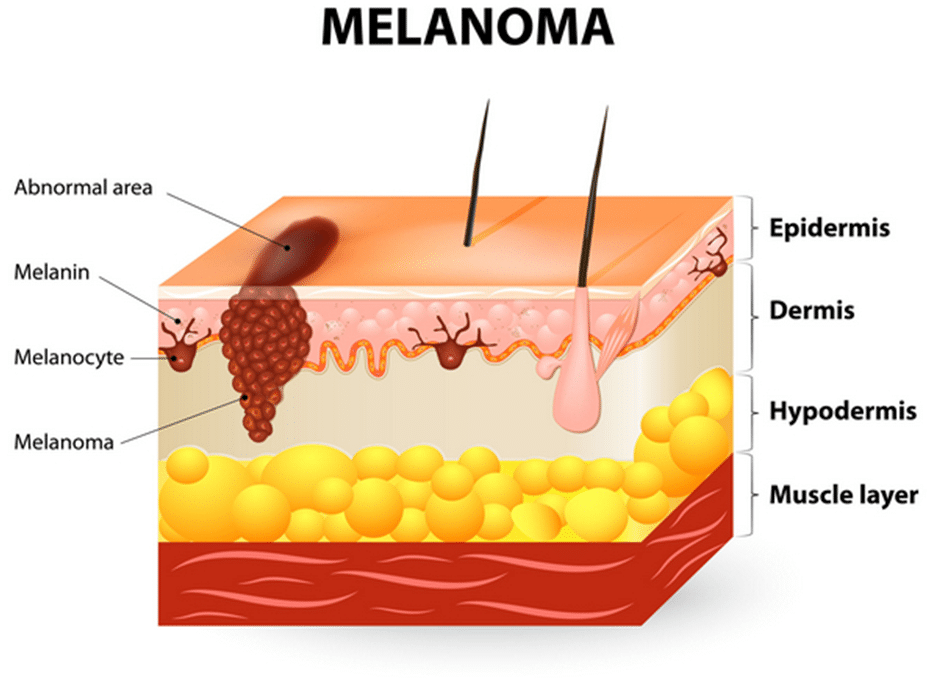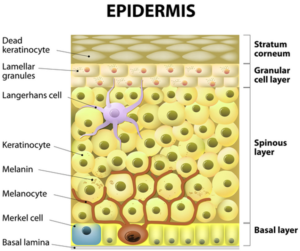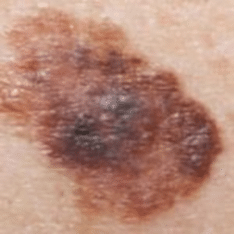What Are the Different Types of Skin Cancer and What Causes Them
Skin cancers owe their name to the cell type that becomes malignant when that type of cancer occurs in the body or skin. You should keep a close watch on your skin and have regular skin checks to reduce your chance of skin cancer. Here are the types of skin cancer and what causes them.
Dr Mark Gittos is a Specialist Plastic Surgeon who performs complex skin cancer lesion removals and reconstruction. He is based in Herne Bay, Auckland NZ and works with Skin Clinics in New Plymouth, Whangarei and Tauranga.
3 Most Common Types of Skin Cancer:
1. Melanoma (life-threatening)
This skin cancer begins in melanocytes, which are responsible for producing the dark brown to black pigment that gives color to the skin known as melanin. Melanoma can occur anywhere on the skin surface. In men, melanoma often occurs on the head, neck, between the shoulders and the hips while in women, melanoma often occurs on the lower legs, or between the shoulders and the hips. Melanoma is rare in dark-skinned people. When it does occur, it can be localised under the fingernails and toenails, on the palms, or on the soles of the feet.
2. Basal cell skin cancer (BCC)
This type of skin cancer occurs in body areas that are more commonly exposed to the sun such as the face. Basal skin cancer commonly affects fair-skinned people. Because of the intense and often excessive sun exposure common to our cultures, many people in Australia & New Zealand develop Basal cell skin cancers – on their face, arms, legs, ears or hands later in life. But again, skin cancer can occur in anyone at any age.
3. Squamous cell skin cancer (SCC)
Squamous cell skin cancer commonly occurs in concealed body areas such as the legs and feet. However, in people with fair skin, this can occur on other skin parts such as the head, ears, face and neck.
Click here to see photos of different types of skin cancers and the RACGP article link on treatment options.
Skin Cancer Causes
Research suggests that more than 95% of skin cancers are caused by sun exposure. In other words, spending time outside in the sun without proper protection can increase your risks of getting Melanoma.
Younger people often tend to believe than skin cancer is not an issue early in life. Maybe you like to sunbath, spend all the time you can at the beach, enjoy the sea and the sun. However, you shouldn’t underestimate the risks of getting skin cancer even at an early age.
Did you know that a common cancer diagnosis for people 15 to 44 years old is melanoma? Or that men have a higher risk of developing melanoma compared to women? This may be linked to the fact that men used to spend more time working outdoors. But nowadays sun exposure habits have changed with our jobs. In other words, everyone should pay attention and use protection to minimise the risks.

6 Risk Factors for Skin Cancer
Studies have revealed six risk factors for skin cancer:
1. Prolonged exposure to the sun, tanning beds and other artificial sources of UV radiation and SUNBURN
With time, too much UV radiation from the sun or tanning beds can cause certain cells to rapidly grow out of control, which can lead to development of skin tumors or cancer. It’s important to mention that getting blisters from the sun can increase your risk for developing melanoma.
2. Your personal history
If you have melanoma, then you are also at risk to develop another type of skin cancer such as basal cell skin cancer and squamous cell skin cancer. If you have other health conditions, your immunity may be compromised and the risk might be increased. To prevent the development of skin cancer avoid the sun. If excessive sun exposure already happened or you had severe sunburns, you should check yourself regularly or see a doctor specialised in diagnosing and treating skin cancer.
3. Genetic predisposition
Skin cancer can be passed from one generation to the other. If you inherit your parents’ defective genes which trigger skin cancer, there is a risk that you’ll get it sooner or later in life.
4. Fair-skin
If you have light skin (fair skin or translucent skin), there is a higher risk for you to develop skin cancer, especially if living in New Zealand. This risk is increased because fair-skinned people tend to have lesser amounts of melanin in the skin, which has a protective role by blocking UV radiation. On the contrary, dark-skinned people have higher melanin deposits in their skin that’s why in this case there is a lower risk of developing cancer.
5. Medication
Medication such as hormone medication, steroids and antibiotics – even certain supplements – can cause your skin to become hypersensitive to the sun and at higher risk of sunburn or of developing skin cancer. Tetracyclines, fluoroquinolones, nonsteroidal anti-inflammatory drugs, diuretics and retinoids are also in this group.
6. Medical conditions
There are certain medical conditions that can lead to an increased susceptibility to skin cancer. These include a weakened immune system, viral infections, albinism (lack of melanin production in the skin), and xeroderma pigmentosum (a defective DNA repair mechanism).
Checking Your Skin for Different Types of Skin Cancer
Prevention and early detection of skin cancer are essential. This is why the recommendation is to regularly check your skin for irregularities or potential signs of cancer. Check for new moles, skin patches that might be raised, different in size, shape or colour, or feel like a sore that won’t heal. Anything suspicious can be a sign of skin cancer.
For the areas that you can’t check such as the back, you should have a medical professional performing an examination on regular bases.
More About the Skin
The skin is the largest organ of the body and also works as a shield. It protects from heat, injury and infection. It also protects the body from harmful ultraviolet (UV) radiation. The skin plays a pivotal role in the hydration and regulation of body heat by storing water and fat.
The skin is divided into two primary layers:

- Epidermis: the skin’s top layer and is composed of flat cells known as squamous cells. Below these cells are round cells known as basal cells. Scattered among the basal cells are melanocytes, which are located in the deepest part of the epidermis
- Dermis: this is the layer under the dermis which contains blood and lymph vessels, and glands
There are sub-layers within the dermis and epidermis.
Cells are the building blocks of our tissues. Cancer involves the altered or uncontrolled division of abnormal cells.
Abnormal cell growth can take many different forms and impact many different cells in the body.
Normally, cells grow and divide to form new cells (which make up tissues). This is often a normal renewal process or occurs in response to different body stimuli such as injury. But sometimes this process is altered. The cells divide rapidly, resulting in the formation of extra cells, which might end up forming a mass or tissue that is called “a growth” or tumor.
NEXT STEPS
See a Skin Cancer Expert if you notice any skin changes including mole changes, texture changes, growths or thickening of the skin. If any abnormal growths, texture changes or lesions occur in the cells of the skin, it’s potentially skin cancer, and should be checked immediately by a qualified Medical Professional who focuses on skin cancer identification and treatments.
Not all tumors or growths are cancerous but only a medical professional can assess the growth properly so medical attention is mandatory. Better safe than sorry.

Skin growths can be non-cancerous (benign) or cancerous (malignant). Normally, benign growths are harmless and can be removed from the affected body area without growing back. On the contrary, malignant growths can be life-threatening and continue to grow back once removed.
Consult immediately with your GP or surgeon once you detect any skin abnormalities for further assessment and medical intervention.
And if you need your Skin Cancer reconstructed or excised (surgically removed with a wide margin), always consult one of the top Plastic Surgeons in New Zealand
Further Reading about Skin Cancer
- Melanoma Treatment NZ
- Why get a Skin Cancer Check in Winter?
- Sun Protection Tips for Reducing Your Skin Cancer Risk by Dr Gittos
Medical References about Sun Exposure and Skin Damage
- Sun exposure and risk of melanoma
- Sun Exposure and Melanoma, Certainties and Weaknesses of the Present Knowledge
- Sun Exposure and Skin Cancer
About Dr Mark Gittos FRACS (Plast) – New Zealand Plastic Surgeon
Practice locations in Herne Bay Auckland, Northland and Bay of Plenty – Kerikeri, Whangarei, New Plymouth & Tauranga
Dr Mark Gittos is a leading Specialist Plastic Surgeon and operates a practice in Herne Bay, Auckland and in the UK. The practice focuses on both surgical and non-surgical procedures, each designed to help restore, improve or change a physical characteristic or problem. The first step in every case is to talk through your personal requirements and explore all the options, before deciding on the most effective solution.
Dr Mark Gittos offers high quality, natural-looking cosmetic surgery results and is highly experienced in Breast, Body and Face Surgery having performed over 4000 Surgeries in the last 26 years. With worldwide expertise Dr Gittos is an expert in breast, face and body surgery for men & women.
Naturally, before any treatment is begun, we will explain clearly the advantages and risk factors; so that you have the information you need to make an informed decision that is best for you. Visit the practice to find out more.

NEXT STEPS
Please NOTE: Dr Gittos only performs surgery on non-smoker patients with a BMI less than 30. To check your BMI please visit the NZ Heart Foundation website. For help giving up smoking before surgery visit the Smoke Free website
Do your Research
- Read the Website and Blogs relevant to your procedure
- Browse our Frequently Asked Questions including how to choose a Surgeon for your procedure
- Download and read the FREE Guides to Surgery
What to Bring to your Plastic Surgeon Consultation
- Bring a friend or relative to help discuss the information and your choices
- Take lots of notes and read the documents provided thoroughly
- Dress in simple clothes as you may need to undress for examination
- Bring your medical referral and any relevant medical documents or test results
Book your Initial Surgery Consultation
- A Referral from your GP or specialist is helpful but NOT essential – you can have a consultation without a GP Referral
- Email us or Call on 09 529 5352 to arrange your surgeon consultation appointment.
- Book a consultation with Dr Gittos by paying the Consultation Fee – $350 incl GST
Traveling for Surgery? – Consider post-surgery luxury recovery in a Hotel with LuxeCare
Please contact us to arrange to book a consultation with our Specialist Plastic Surgeon or to speak with our Patient Care Advisor.
Send an enquiry form today or phone 09 529 5352 during Clinic Hours
